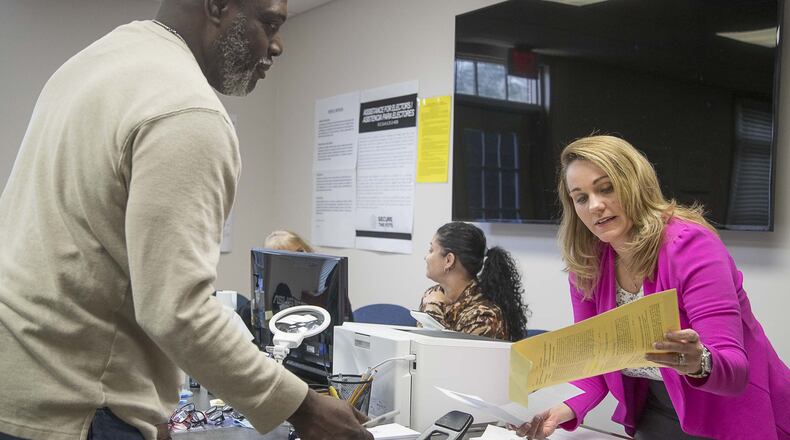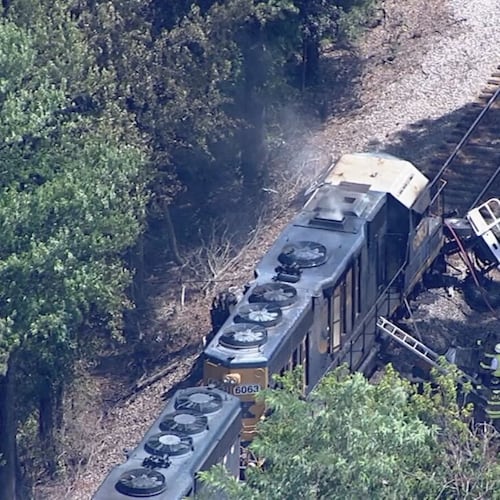Gwinnett County activists have been pushing for an expansion of early voting. But the coronavirus pandemic may reduce it, instead.
That’s because it is unclear how many poll workers are willing to work during the primary elections, which have been rescheduled for June 9. And training those that will show up on the new voting machines is uncertain with the state and local stay-at-home orders in place, said Gwinnett Elections Supervisor Kristi Royston.
“The number not interested in working is going to continue to grow,” Royston said Tuesday of poll workers.
And there are further complications.
The need for social distancing has knocked out three of the county’s eight early voting locations — the Dacula Park Activity Building, Mountain Park Activity Building and Shorty Howell Park Activity Building — because they lack the space required to keep people safe.
At the locations that have enough room inside, Royston said, the need to social distance will likely mean voters will have to stand in long lines.
“They will be in the elements more often than they have been in the past,” Royston told members of the elections board last week.
Royston was evaluating the large indoor exhibition spaces at the Gwinnett County Fairgrounds as an alternative. But the fairgrounds are booked beginning May 10 and early voting is scheduled for May 18 to June 5.
The elections board will also look at using the Rhodes Jordan Park Community Center to create another location with more space.
The way polling places are set up will also have to be reevaluated, Royston said.
Two poll workers typically sit at a six-foot-long table to check voters in — too close to follow the Centers for Disease Control and Prevention’s recommended distance of six feet between people. Voting machines are also usually organized two to a six-foot table.
The changes will likely mean fewer voting machines and fewer poll workers in each location.
Royston said she was considering keeping Gwinnett’s early voting offerings to the required state minimum — three weeks at one location. But she said with the pandemic still happening, it was difficult to know what to suggest.
“I think we’re going to look back and be in that wait-and-see group ourselves,” she said.
Commissioners on Tuesday decided to wait until May 5 to decide what level of early voting they would fund. Additionally, Royston said, regular polling locations that were scheduled for March and May may not be available because they did not have the June date in their calendars, and could be otherwise booked.
The same is true for the runoff, now scheduled for Aug. 11.
The county's bipartisan Board of Registrations and Elections asked county commissioners earlier this year to hold 19 days of early voting at all eight early voting locations.
The county had planned 12 days of early voting at seven of the eight locations. One polling place, the county’s main elections office, was always slated to have 19 days of early voting.
County leaders in February said there was not enough time to train election workers on new equipment for the scheduled March 24 election. But county commissioners said they would consider funding more hours at the other seven early voting locations for the primary election scheduled for May 19.
Both elections have since been rescheduled.
Royston also said the new dates could affect the schedules of summer camps, for example, that use county park buildings.
Amid the questions of what will happen to early voting, demand for absentee ballots has been high. Royston said her office received about 58,000 absentee ballot applications through Monday. She has hired five temporary workers to help open and process the applications.
Keep Reading
The Latest
Featured


